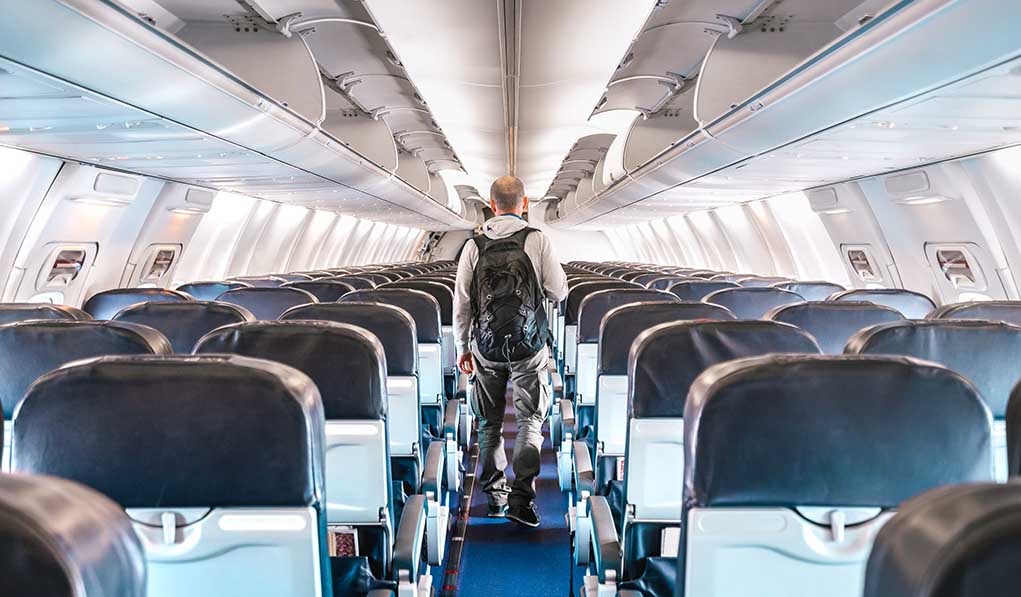
A former British flight attendant faces 25 years in a Sri Lankan prison after being caught with 100 pounds of “Kush,” a deadly synthetic drug containing human bones and valued at $3.3 million.
Key Takeaways
- Charlotte May Lee, 21, was arrested at Bandaranaike Airport in Sri Lanka in what officials call the largest marijuana-related bust in the airport’s history
- “Kush” is a lethal synthetic drug originating from West Africa that contains cannabis, fentanyl, tramadol, formaldehyde, and possibly human bones
- Lee claims the drugs were planted in her luggage while in Bangkok and insists she knows who is responsible
- Sri Lankan authorities have noted an increase in drug trafficking from Bangkok with another similar arrest occurring around the same time
- The drug has caused thousands of deaths in West Africa, prompting national emergencies in Sierra Leone and Liberia
Record-Breaking Drug Bust in Sri Lanka
Charlotte May Lee, a 21-year-old former British flight attendant, now faces up to 25 years in a Sri Lankan prison after authorities discovered approximately 100 pounds of a dangerous synthetic drug known as “Kush” in her possession. The young woman was detained at Bandaranaike Airport with drugs valued at approximately $3.3 million, marking the largest marijuana-related seizure in the airport’s history. Lee was working in Thailand and had traveled to Sri Lanka while waiting for her visa renewal when the arrest occurred, dramatically changing her life trajectory.
Sri Lankan authorities have been monitoring an increase in drug trafficking from Bangkok. A customs officer involved in the case revealed, “Another passenger who had left Bangkok airport, almost at the same time, was arrested in another country. We arrested this lady [Lee] based on profiling.” This statement suggests a coordinated effort by law enforcement to target suspected drug couriers on specific routes, indicating a broader drug trafficking network may be at play.
The Deadly “Kush” Epidemic
“Kush” is not your average street drug. This dangerous substance has caused thousands of deaths in West Africa and is a toxic mixture of cannabis, fentanyl, tramadol, formaldehyde, and most disturbingly, human bones. The drug originated in Sierra Leone and has spread to other West African countries, creating such devastating public health crises that the presidents of both Sierra Leone and Liberia have declared national emergencies to combat its spread. Chemical testing has revealed that “Kush” contains nitazenes, a deadly synthetic opioid, and synthetic cannabinoids.
“I had never seen them [the drugs] before. I didn’t expect it all when they pulled me over at the airport. I thought it was going to be filled with all my stuff,” said Lee in her defense.
The manufacturing and distribution network for “Kush” is becoming increasingly complex. The ingredients are reportedly imported from China, the Netherlands, and possibly the UK, using various transportation methods. What makes this case particularly alarming is the evolving nature of the “Kush” market, which is becoming more fragmented with smaller groups setting up operations, making it harder for authorities to track and shut down these deadly distribution networks.
Claims of Innocence and a Compromised Defense
Lee vehemently denies knowledge of the drugs, claiming they were planted in her luggage without her consent. “They must have planted it then,” she insisted when confronted with the evidence. More intriguingly, she has stated, “I know who did it,” suggesting she may have been unwittingly used as a drug mule. Lee mentioned leaving her bags unattended in a hotel room in Bangkok and admitted to not checking them before her flight to Sri Lanka, a critical lapse in judgment that may have sealed her fate.
“Another passenger who had left Bangkok airport, almost at the same time, was arrested in another country. We arrested this lady [Lee] based on profiling,” stated a Sri Lanka customs officer.
Despite her claims of innocence, Lee now faces the harsh reality of Sri Lanka’s stringent drug laws. The country is known for its severe penalties for drug trafficking, with sentences that can stretch decades. This case highlights the vulnerability of travelers who may be targeted by sophisticated drug trafficking organizations that exploit unsuspecting individuals. It also serves as a stark reminder of the critical importance of maintaining constant vigilance over personal belongings when traveling internationally.











